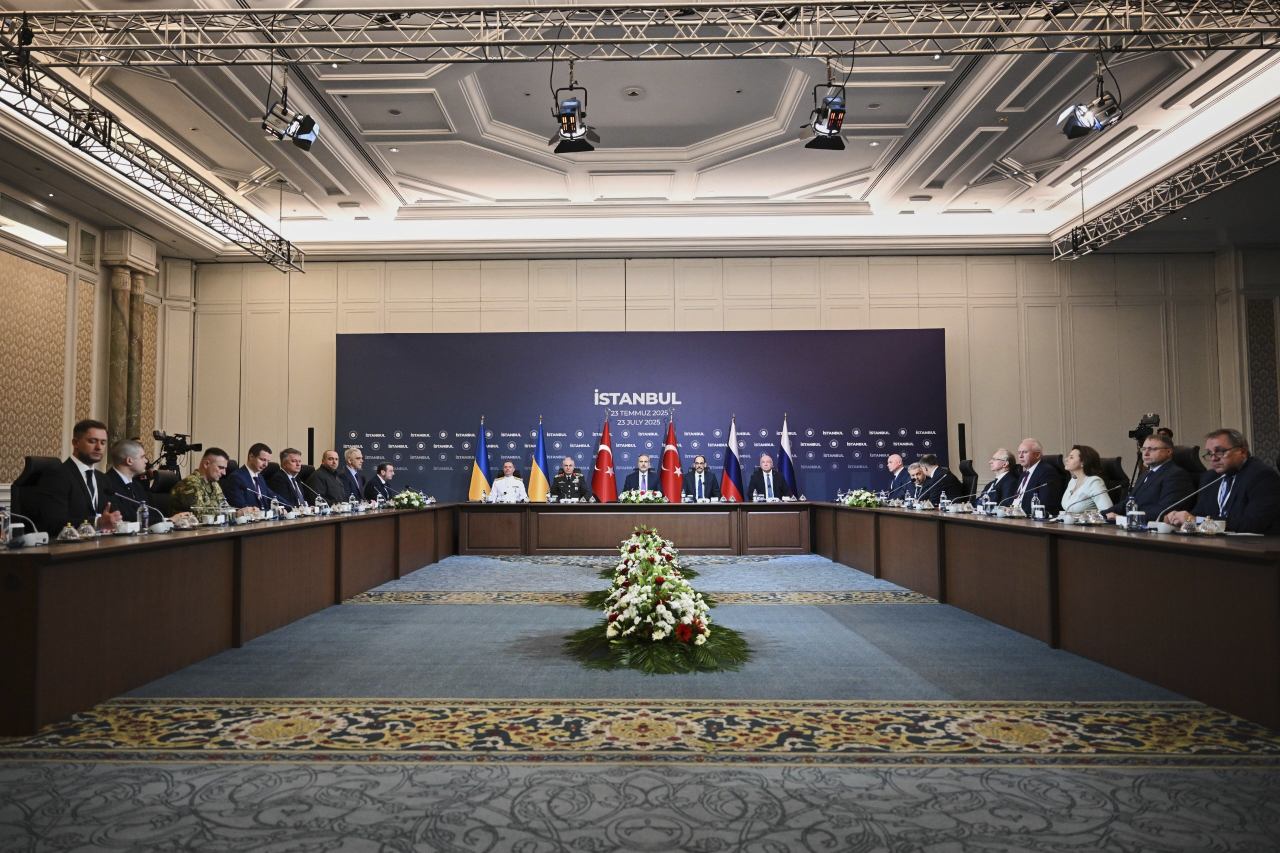The Stalemate in Peace Talks Between Ukraine and Russia
The ongoing conflict between Ukraine and Russia has not seen any significant progress, despite repeated attempts by various international figures to mediate a resolution. Recently, the third round of direct talks between Ukrainian and Russian officials took place in Istanbul, but the meeting ended without any tangible results. The discussions lasted for less than an hour, highlighting the deepening impasse between the two sides.
Rustem Umerov, a senior Ukrainian official who led the delegation, expressed frustration at the lack of progress. He emphasized that even after six months of negotiations and multiple meetings, there has been no movement toward a cessation of hostilities or a cease-fire. Umerov also reiterated Ukraine’s offer for President Volodymyr Zelensky to meet with Russian President Vladimir Putin, a proposal that Russia has consistently refused to accept.
This lack of progress has raised questions about the effectiveness of former U.S. President Donald Trump’s recent efforts to pressure Moscow into making concessions. Trump had threatened to impose 100% tariffs on Russia’s top trading partners if a peace deal wasn’t reached within 50 days. He also pledged to work with European allies to send Patriot air-defense systems to Ukraine. However, these threats have not led to any meaningful changes in Russia’s position.
Tolong support kita ya,
Cukup klik ini aja: https://indonesiacrowd.com/support-bonus/
Administration officials argue that the current talks are happening because of Trump’s leadership, claiming that the dialogue between the two nations is a result of his involvement. White House spokeswoman Anna Kelly stated that Trump made the threat to push for an end to the violence. However, analysts suggest that Trump’s approach has not led to the kind of pressure needed to force a resolution.
Russia continues to maintain its maximalist demands, insisting that any negotiated end to the conflict must address what it calls the “root causes” of the war. This essentially translates to reasserting Russian dominance over Ukraine and compelling the West to withdraw support. Meanwhile, Russia has been advancing on the battlefield and intensifying attacks on Ukrainian population centers.
Experts like Alexander Gabuev from the Carnegie Russia Eurasia Center describe the current situation as a continuation of the same diplomatic stalemate. He noted that Putin is unlikely to agree to a deal that doesn’t align with his terms.
Despite Trump’s frustration with Russia’s continued attacks on Ukraine, he has not taken steps that would significantly alter the course of the war. Analysts believe that Trump may continue to delay action, hoping for a favorable outcome rather than proactively pursuing a strategy that could lead to a lasting peace.
Senator Lindsey Graham proposed legislation to impose sweeping 500% tariffs on Russia and its trading partners, but Senate Republicans have backed away from the proposal due to objections from Trump. Trump has assured lawmakers that he will take his own actions to penalize Moscow, emphasizing his desire to retain control over decisions related to sanctions.
The tariffs on Russia’s partners would escalate an already complex trade war, with some of Russia’s largest trading partners including China and India. The Patriot missiles promised by Trump would help bolster Ukraine’s air defenses, but they won’t fundamentally change the balance of power in the war. Senior U.S. and European officials warn that Russia’s arsenal of drones and missiles far outnumbers the supplies the West can provide to Ukraine.
Providing Ukraine with long-range missiles to attack launch sites and airfields inside Russia would be necessary to halt Russian attacks, but the U.S. has been reluctant to do so.
Expectations for the latest talks were low, with Russia itself downplaying the negotiations before they began. Kremlin Spokesman Dmitry Peskov stated that there was no reason to expect any breakthroughs. Ukraine sent Rustem Umerov, who previously served as defense minister, while the Russian delegation was led by Vladimir Medinsky, a close associate of Putin.
The previous round of talks in June occurred just after a daring Ukrainian drone attack on Russian territory, which damaged part of Russia’s nuclear-capable bomber fleet. While this boosted Ukrainian morale, Russia imposed harsh conditions during the negotiations, demanding recognition of its sovereignty over Crimea and other regions, as well as military neutrality.
Since then, Ukraine has faced wave after wave of Russian drone attacks, straining its air defenses. Yevgeniya Gaber, a former Ukrainian foreign-policy adviser, criticized Russia for continuing large-scale aerial attacks on civilians and infrastructure, suggesting that it is not negotiating in good faith.







